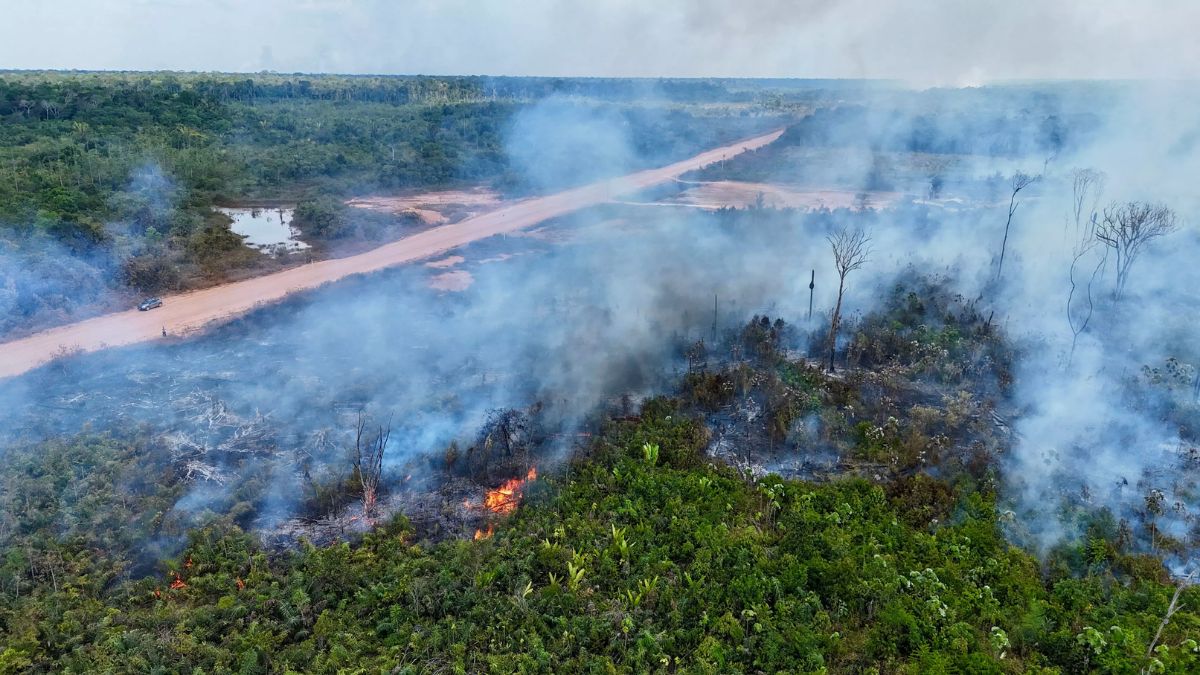Brazil will be hosting the COP30, the UN’s annual climate summit in November.
Around 50,000 people, including several world leaders, are expected to attend the summit slated to be held in Belém from November 10 to November 21.
However, in an ironic twist, it turns out that thousands of acres of protected rainforest in the Amazon are being demolished to build a road for the climate summit.
But what happened? What do we know?
Let’s take a closer look:
What happened?
According to BBC, the four-lane highway goes through tens of thousands of acres.
The idea behind the highway to ease congestion to the city of Belém – home to more than 2 million people and the capital of Para state.
As per India Today, the highway is being called the Avenida Liberdade or ‘Avenue of Liberty.’
The highway will have two lanes of traffic in both directions, as per the Para government website.
It will connect two existing road systems as well as serve as a new entry and exit route for the Belém Metropolitan Region.
The cleared land covers a distance of over 13 kilometres.
The site is home to diggers and machines which are laying the road over the forest floor.
Around 20 per cent of the work has been completed as of November 2024, as per CBS.
Claudio Verequete, who resides around 200 metres from the under construction highway, told the BBC that he used to make money from açaí berries from trees which once stood.
“Everything was destroyed,” Verequete said. “Our harvest has already been cut down. We no longer have that income to support our family.”
“Our fear is that one day someone will come here and say: ‘Here’s some money. We need this area to build a gas station, or to build a warehouse.’ And then we’ll have to leave. We were born and raised here in the community. Where are we going to go?”
Verequete said he received no compensation from the government is now dipping into his savings.
However, the Brazilian government has defended the project.
According to Daily Mail, Brazil’s President Luiz Inacio Lula da Silva, who has projected himself as a defender of the rainforest, said the summit will be “a COP in the Amazon, not a COP about the Amazon.”
Lula claimed that the COP30 would showcase the needs of the Amazon and display to the world what Brazil’s government has done to protect it, according to the newspaper.
The newspaper quoted Adler Silveira, the secretary of the state government’s infrastructure, as calling it an “important mobility intervention.”
Silveira insisted the project was a “sustainable highway.”
“We can have a legacy for the population and more importantly, serve people for COP30 in the best possible way,” he added.
Silveira claimed that the highway would have wildlife crossings for animals, bike lanes as well as solar lighting.
What do experts say?
Experts are seem less than convinced by the government’s assertions.
Professor Silvia Sardinha, a wildlife vet and researcher at a university animal hospital which is near the new highway, told BBC, “From the moment of deforestation, there is a loss.
“We are going to lose an area to release these animals back into the wild, the natural environment of these species,” she said.
“Land animals will no longer be able to cross to the other side too, reducing the areas where they can live and breed.”
Responding to Lula’s lofty claims, Sardinha said such talks happen “at a very high level, among business people and government officials.”
She added that those living in the Amazon are “not being heard.”
Verequete agreed, telling the Daily Mail, “For us who live on the side of the highway, there will be no benefits. There will be benefits for the trucks that will pass through. If someone gets sick, and needs to go to the centre of Belém, we won’t be able to use it.”
Rachael Garrett, a professor of conservation and development at the University of Cambridge, told ABC News in September that while paving roadways can benefit citizens, building a highway amidst the rainforest will likely lead to a “fishbone pattern” of deforestation.
The Amazon, an area twice the size of India, holds the world’s largest rainforest, about two-thirds of it within Brazil. It stores vast amounts of carbon dioxide, a greenhouse gas that causes climate change.
The Amazon thus prevents the climate from warming even faster than it would otherwise.
The basin also holds about 20 per cent of the world’s fresh water and biodiversity includes 16,000 known tree species.
Ironically, this is a landmark year for the COP30.
This is because countries must come forward with updated commitments to cut greenhouse gas emissions.
What’s more, civic groups are particularly interested in attending because Brazil allows for protests and free expression, which are sharply restricted in the previous three host countries – Azerbaijan, the United Arab Emirates and Egypt.
With inputs from agencies
)